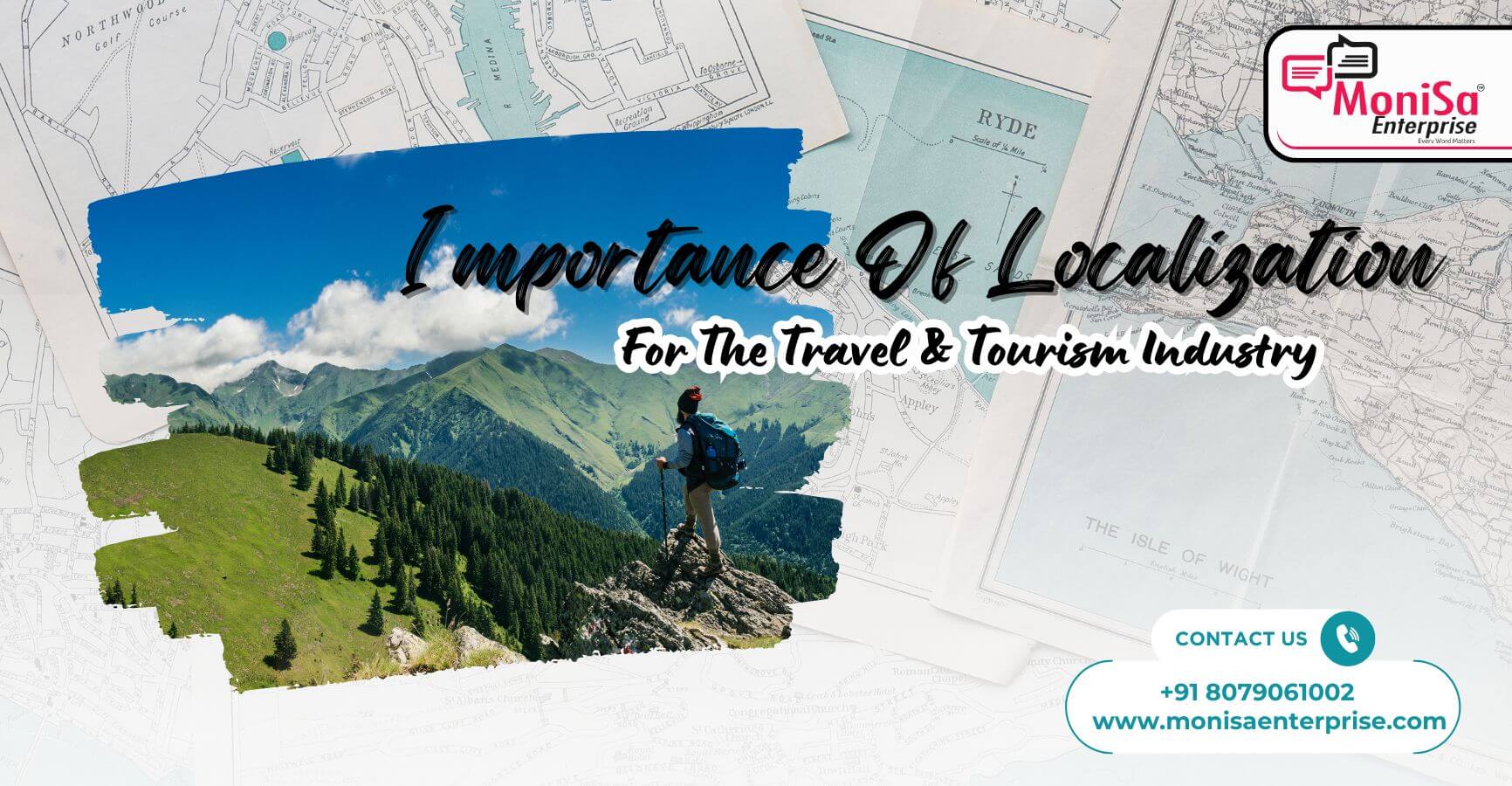After a mentally & physically scarring year, limiting our travel plans (by a 72.4% decrease in international arrivals), 2023 looks promising. The Covid-19 pandemic scare remains, but not to an extent that might hinder the masses from venturing into the locations they’ve wished for. Travel & Tourism industries observe another fast-growing rise in people flooding into exotic as well as relaxing vacation spots. With this, their need for Localization services is also in high demand. Generally, the Travel & Tourism Industry focuses on;
- Transportation & Accommodation
- Food and Beverage Facilities
- Entertainment Factors
- Related Industries
Of them all, we will focus on related Industries; more specifically – Translation and Localization services.
How is Localization relevant to the Travel & Tourism Industry?
Table Of Contents
The question isn’t whether they’re related, the question is- How to make Localization services benefit Travel & Tourism?
We live in a vast heterogeneous world that speaks 7,100 languages, where 1.4 billion people travel each year. Although English is deemed our universal language, we cannot expect every individual to learn it. Travel Brands need it to:
- Reflect on the language and cultural values of the location.
- Attract tourists at local and international levels.
- Assure that their marketing messages are relatable.
- Localize campaigns, social media posts, notifications, newsletters, and other diverse content sent for promotional purposes.
- Modify visual effects and images to reflect the local culture.
It involves some other factors that relate to more than simple localization. Some modifications in varied cultural or regional elements are also considered, such as:
- The difference in time zones.
- Accommodation as per cultural references, and how comfortable the traveling or touring party is with or without the specific cultural translations.
- Adding location-specific primary and secondary keywords to increase traffic for the travel brand.
Collectively all related localization services for travel brands are known as travel content localization. When companies, organizations and tourism outlets keep updating their website to market their material on a global level, while being culturally and linguistically accurate, it is known as elaborate travel content localization.
Why does the Travel Industry need Content Localization?
To allow travel brands to make an entry into foreign markets their content on the website and everywhere else on the Internet should meet specific linguistic and cultural requirements. In fact, some search engine optimization needs the same standard translated content with 100% accuracy that translates directly into the original content but with cultural relevance. Let us list some other reasons why;
A) Enhance User Experience
Users are the travelers that would check the travel brand for facilities and how their content is tailored as per local customs and cultures. When a user first visits their website the first impression is based on whether the travel content meets their expectation and how familiar or welcoming every travel plan is. Localization services are a part of making this website more approachable.
B) Developing International Presence
Initially, a brand begins with a handful of connections, inbound or outbound links, etc to appear in search results. But we cannot call the travel brand successful unless they have met the translation and localization needs of its website content. They cannot claim this international status and global presence without localization services. This presence gives them a global competitive stand and increases website traffic resulting in more bookings, which directly translates to profit.
C) Increased ROIs
Localization is the defining point of your profits. Since you reach an even wider audience base, how you approach them decides whether they make the purchase from your travel brand or not. Better reach through transcription or translation services means more website views, purchases, and increased return on investment. Your topmost priority for investing should be in the translation and localization of the following:
- Website content- Homepage, FAQs, Blogs, Guide/ Tour descriptions
- Social media content- Visual text, Posts, Captions, Headers
- Search Engine Optimization
- Communication platforms like on-site chatbots, live streams
- Mobile application pages
- Campaigning or Marketing Resources
Travel sectors that need Localization services
- Hospitality Sector
- Airlines
- Hotels, Resorts & Restaurants
Best Practices of Localization in travel industry
A) Build your Team
Your Team is the most important part that defines Localization standards. Confidently recruit the permanent staff, and outsource professionals for more specific projects. MoniSa Enterprise can be an irreplaceable part of your team with the best Localization services.
B) Define the Target Market
People like to travel in cold, hot, mountainous, or beach cities. The list goes on with so many variations since the number of adventurous tourists keeps increasing each day! Define which market your travel band targets. Recognize the cultural and linguistic aspects of the region, and reach the audience with relevant content.
C) Focus on Popular Languages
But – only initially. Of the popular languages, namely, English, Spanish, Chinese, French, Arabic, German, Portuguese, Hindi, Russian, and a few more, you can avail translation services for the top 5 since that is the majority of your customers. However, this is relevant for small-scale travel Brands only. An international presence is possible only when you translate for, not the ‘majority’ but for ‘all’.
Conclusion
Aren’t confident about recruiting a team? MoniSa Enterprise practices perfect Localization services that boost your Travel brand, helping you enter a competitive market in the Travel & Tourism Industry. Afraid not, competition is a part of getting better at what we do. With our specialized experienced team, we can make every translation and localization goal achievable. Visit our official services pages to know how we can help you!



0 Comments